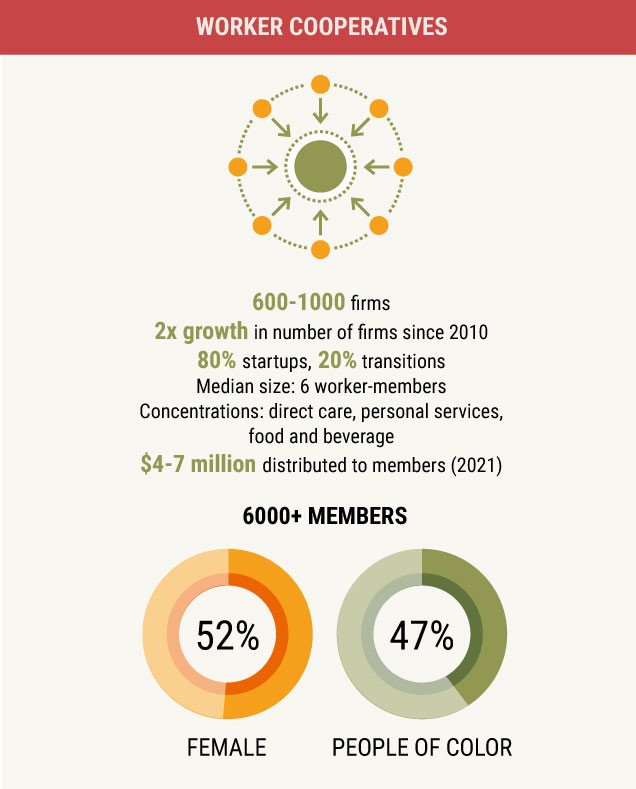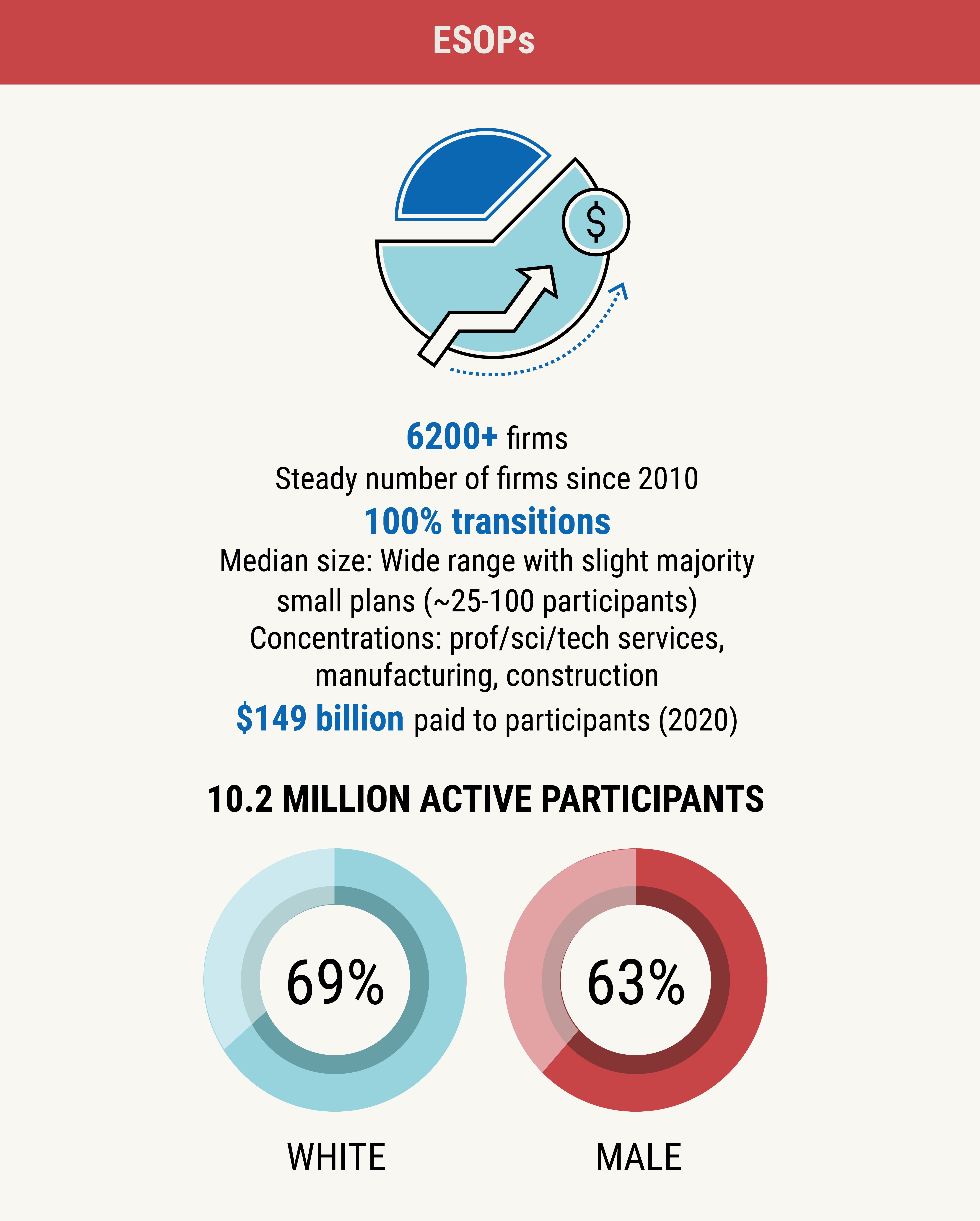Employee ownership is an umbrella term for shared ownership of a business by the people who work in it. The two major forms of employee ownership — worker cooperatives and ESOPs—have different origin stories, political frameworks, ecosystem relationships, and even size and scale, but they are complementary, creating between them a full-spectrum approach.


